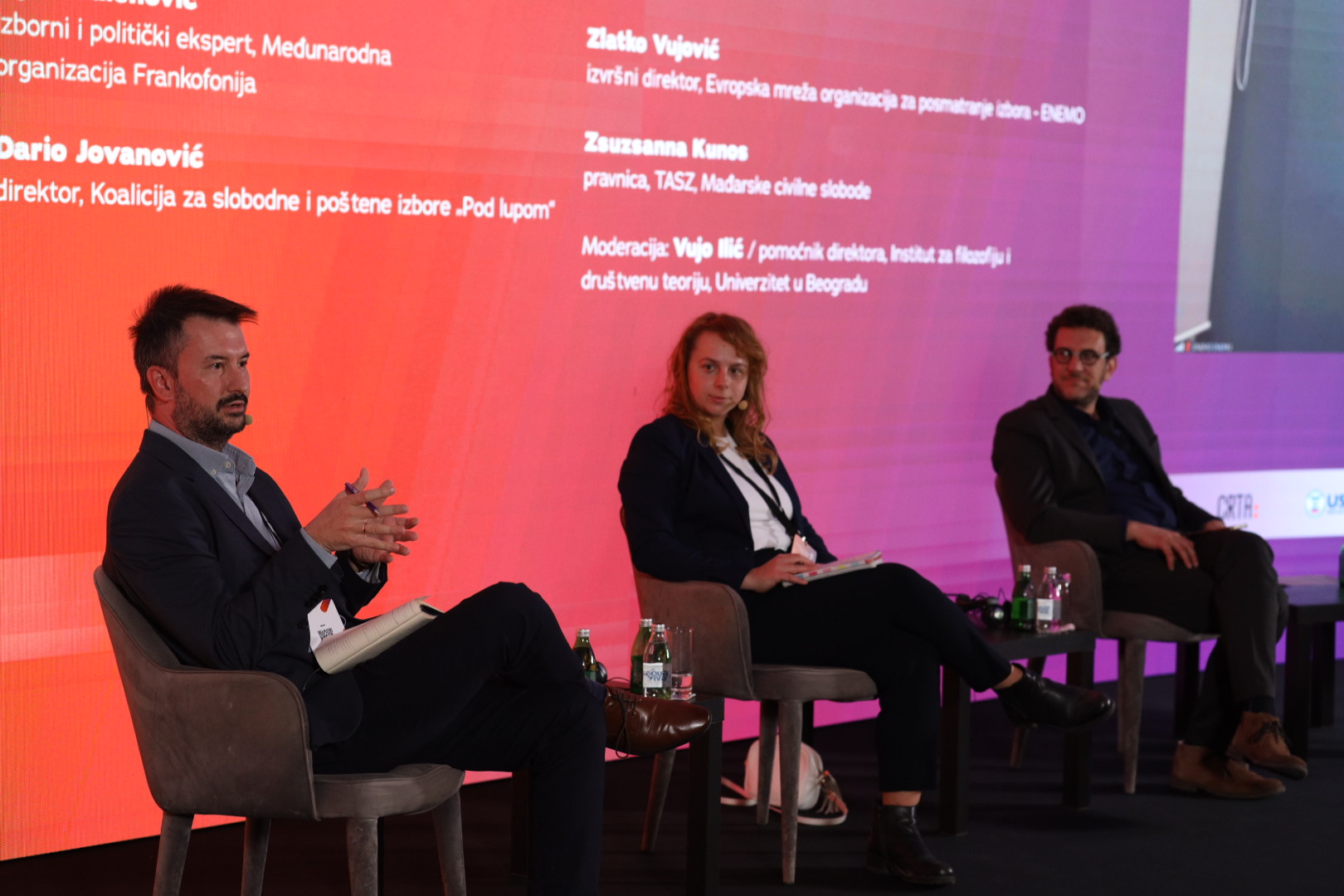Migrations and Other Manipulations: A Cross-border Problem
 Foto – CRTA/Marko Risovic
Foto – CRTA/Marko Risovic
How can we prevent those who attempt to stop voters from clearly expressing their will? How can we track down all election manipulations, expose them, and clear the path for citizens to the ballot box? At the panel “Migrations and Other Manipulations: How to Prevent Electoral Engineering?” participants agreed that the problem is significant, but solutions do exist.
“It seems as though someone has written a manual on how to manipulate elections and is applying all those instructions to the Western Balkans”, said Zlatko Vujović, Executive Director of the European Network of Election Monitoring Organizations (ENEMO). He recalled the findings of the CRTA’s Observation Mission and numerous pieces of evidence regarding organized voter migration during the parliamentary elections held in December 2023.
In this context, he pointed out the anomalies in Montenegro’s Voter Registry, with individuals registered simultaneously in voter registers in Serbia, Montenegro, and Bosnia and Herzegovina, and due to the systemic nature of such election manipulations, he noted – “the problem of migrations is a shared one, and we should try to solve it”. Vujović reminded of the proposal to exchange data between Western Balkan countries to maintain more up-to-date voter registries.
Cyril Kulenovic, an expert in elections and politics, emphasized that the manipulation system is extremely complex. He discussed numerous challenges faced by election administrations worldwide, noting that constant work is needed to address issues like duplicates in voter registries, voter registration both inside and outside electoral districts, and other issues related to the election process.
“The biggest problem is actually corruption, it is systemic and creates the phenomenon of a captured state”, stressed Dario Jovanović, project manager of the coalition “Under the Magnifying Glass – Coalition for Free and Fair Elections”. He is convinced that corrupt systems are behind all these electoral manipulations, and in such systems, electoral irregularities are present both before and on election day.
Zsuzsanna Kunos spoke about irregularities in Hungary. She noted that in her home country, “the biggest frauds are actually legal, as the ruling majority has the ability to change the law” and thus tailor the electoral legislative framework to their needs. “It might look like an administrative change, but it has a significant impact”, Kunos said. As a result, although NGOs in Hungary face pressure and are targeted by the authorities, Kunos emphasized the importance of raising public awareness about all the threats to elections and democracy.
During the panel, it was particularly emphasized that the culture of impunity is what keeps electoral manipulations widespread and that institutional responses and the punishment of criminal acts would be among the first steps in preventing electoral engineering.








